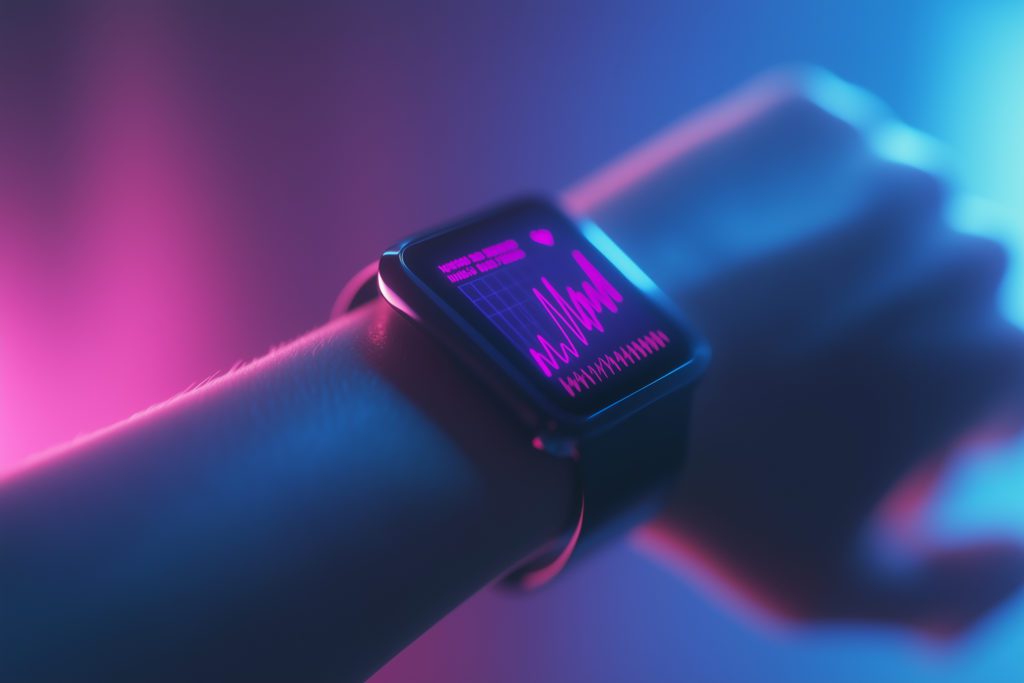
The Role of REM Sleep in Heart Health: How Dreaming Affects Your Heart
Did you know that REM sleep is connected to your heart health? Discover this remarkable relationship and how your dreams impact your heart.

When we rest at night, we go through several stages of sleep, including REM sleep. Our REM sleep is an essential part of our rest and recovery, and it is actually where we dream. Whether or not you remember your dreams, did you know that our REM sleep can actually impact our heart health over time? It’s true, and that’s precisely what we are going to explore in this article.
We’ll dive deep into the connection between REM sleep and heart health, showing you more about this fascinating connection and how our dreams can actually alter our cardiovascular functions, even briefly. Then, we’ll explore how REM sleep disruption can impact your heart health, including the long-term implications of this issue.
We’ll also discuss some steps you can take to improve your REM sleep and heart health. First, let’s explore how night terrors, nightmares, and vivid dreams impact your sleep and why.
How Night Terrors, Nightmares, or Vivid Dreams Impact Your Sleep
As you can imagine, nightmares, night terrors, or even vivid dreams can impact our sleep, disrupting our rest and waking us up. Nightmares are among the most disturbing to your sleep, as they are physically and even sometimes emotionally distressing to the point of hurting your rest and your daytime routines. Even though you might not remember what happened, you remember how it feels, and you are unsettled, leading to sleep troubles because you wake up during REM sleep.
However, night terrors can be even worse for your health and rest. When you have night terrors, you can usually expect disturbed sleep, and you may also experience more fatigue throughout the day, making it harder for you to be productive. Additionally, you are typically woken up during the non-REM slow-wave sleep phase, which makes you more confused upon waking and often disrupts your brain waves.
Whether you have a pleasant, vivid dream or a night terror or nightmare, your sleep can be impacted, leading to disruptions to your non-REM and REM sleep, as well as your body’s rest and recovery during essential parts of your sleep cycle. However, what is the connection between REM sleep and heart health? We’ll look at that in more depth next.
The Connection Between REM Sleep and Heart Health
While many studies have not shown REM sleep to be the most important for our rest and recovery, it might shock you to find out that this stage of rest is actually associated with impacts on your cardiovascular health. Your REM sleep is when your brain is active and can last as long as an hour. This is when your brain gets more oxygen, your heart rate might vary, and so will your blood pressure. So, your REM sleep does have an impact on your heart rate and overall heart health during this time.
However, we all know that REM sleep is when we dream, so do our dreams specifically have an impact on our heart health? The answer is yes, and in ways you likely have already noticed. If you have ever woken up from a scary dream and you’re running away from something or someone, you can feel your heart racing when you wake up. When you’re deep in REM sleep and dreaming, your heart will react to your dreams, increasing or slowing based on the context of your dreams (Source: Harvard Health Publishing).
So, as you can see, REM sleep and heart health are connected. REM sleep leads to altered heart rates and blood pressure, sometimes even depending on what we dream about. Understanding this notion, it’s imperative to look at how REM sleep disruption can impact heart health and why researchers might have become so concerned with REM sleep in recent years. But before that, let’s look at how nightmares and other terrible dreams might impact your rest.
How REM Sleep Disruption Impacts Heart Health
While REM sleep can alter our heart rates and blood pressure depending on our dreaming, disruptions to this all-important sleep stage can actually have worse impacts on our heart health. Many studies have shown that sleep disturbances, including during REM sleep, can lead to people becoming more at risk of obesity. However, when it comes to heart health, sleep disturbances during REM sleep are even more concerning.
Because REM sleep can affect our heart rate and blood pressure, disruptions to this sleep stage will impact us. If you struggle with shorter sleep duration, this can put you at risk for issues like hypertension and cardiovascular disease. While one night of sleep disruption is not likely to cause this immediately, you might see changes over time that could not only change your heart health but impact your overall well-being.
Certain sleep disturbances or sleep disorders, like obstructive sleep apnea, can harm your heart health. Researchers have found that obstructive sleep apnea is a common comorbidity for those who might have cardiovascular diseases or heart failure even (Source: European Journal of Preventative Cardiology). It’s an unfortunate truth, but it shows just how much certain sleep disorders and disturbances can harm the body and even make you more likely to develop further health issues in the future.
That’s why it is so important to find ways to treat sleep disorders and mitigate sleep disturbances, especially for those who struggle to get deep sleep. If you’re struggling with getting adequate rest, let’s explore some tips that can help you get better sleep and enjoy enhanced heart health.
Steps to Improve REM Sleep for Better Heart Health
Fortunately, there are many ways that you can encourage better REM sleep and then also support your heart health. By focusing on improving your sleep schedule, both by sticking to a bedtime and ensuring you get enough sleep, you can see a difference. Here are a few tips that you can try for better REM sleep based on proven studies:
- Realign with Your Circadian Rhythm: Shift workers may struggle with poor sleep more than others because of circadian rhythm misalignment, which limits REM sleep. Put more effort into prioritizing your rest and sticking to a consistent sleep schedule as much as possible, as this can help you restrict the cardiometabolic challenges you might face as a result of poor sleep or sleep disturbances.
- Create a Comfortable Environment for Rest: The worst thing you can do is try to sleep in a setting that does not make you feel at ease. If your bedroom is full of distractions, bright, and noisy, then you’ll want to make some changes. Limit technology, engage in some relaxing activities you enjoy, and make this a regular habit every night before you go to bed.
- Consider Treatments like CPAP: If you have sleep apnea, then you might want to try continuous positive airway pressure therapy, also known as CPAP therapy. While it has not been proven to limit cardiovascular conditions from developing due to sleep disturbances during REM sleep, there are studies being conducted that suggest future research might show how CPAP therapy can actually help limit cardiovascular risks for certain patients.
With these steps, you can encourage better rest, enhance your well-being, and protect the REM sleep that your heart needs to remain at its healthiest.
Protect Your REM Sleep and Enhance Your Well-Being
Now that you know how REM sleep is connected to your heart health, it’s time for you to take steps to enhance your well-being. How will you support your sleep and heart health now and into the future? For those curious about how to improve their sleep health and how sleep might be connected to more aspects of your health, check out our website today to read the latest articles from our experts.

Written by
Marie Soukup
Marie Soukup is a seasoned copywriter, editor, and Integrative Nutrition Health Coach with a certificate from the Institute of Integrative Nutrition (IIN). With years of experience working with brands across diverse industries, Marie is passionate about holistic health and crafting compelling content.
Download Pillow
Get help
Press & News
Legal
Connect
X (Twitter)
Company
Copyright © Neybox Digital Ltd.



